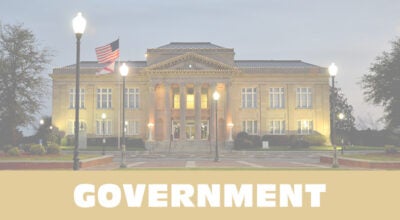Bill could cause power rates to escalate
Published 12:09 am Wednesday, August 12, 2009
The South would be disproportionately punished by an energy bill being considered by Congress, Partnership for Affordable Clean Energy (PACE) executive director Lance Brown said at a meeting at Andalusia City Hall on Tuesday evening.
The Waxman-Markey Bill, commonly referred to as “cap-and-trade,” has already passed the House and could come up for a vote in the Senate later this year. The bill would limit the amount of carbon dioxide emissions that a power plant can produce, and require 20 percent of all energy be produced from renewable resources. It would also establish a “carbon credit” system, where producers that emit less carbon dioxide (such as solar and wind-powered plants) could sell their credits to producers that emit more carbon dioxide (such as coal-powered plants).
PACE, a non-partisan coalition and 501(c)(4) organization, believes that such a bill would cause energy costs to skyrocket across the U.S., and especially in the South, where there is a larger number of coal-powered plants.
Alan Thrash, vice president of operations at Covington Electric Cooperative, said it is estimated that Alabama residents’ power bills could increase anywhere from 6.2 percent to 38 percent, depending on the cost of the credits energy producers would need to purchase.
“These are just estimates that have been given to us, but it’s concerning,” he said. “We must find a solution that treats customers fairly and works in the long term.”
Brown said the bill is unfair because it does not count hydroelectric power — very common in Alabama and the South — as a renewable resource. He also explained that solar power and wind power simply won’t work in Alabama, because the state does not have enough cloudless days for solar power nor the high elevation for wind power.
“It makes no sense not to include hydro power in the bill,” he said. “We believe this is not a bill about energy policy, but about economic policy. It’s about leveling the playing field so other parts of the country can compete with the low power rates we have in the South.”
Brown further stated that the bill would actually have the greatest impact on the lower class.
“Everyone’s utility rates will go up, but the poorest will be hit the hardest,” he said. “You could see some wage earners putting as much as 20 percent of their income toward energy costs.”
Brown said health care would be the top issue in Washington when Congress returns from recess, but the cap-and-trade bill would be next in line for debate. He urged citizens to contact U.S. senators and tell them to vote against the bill.





